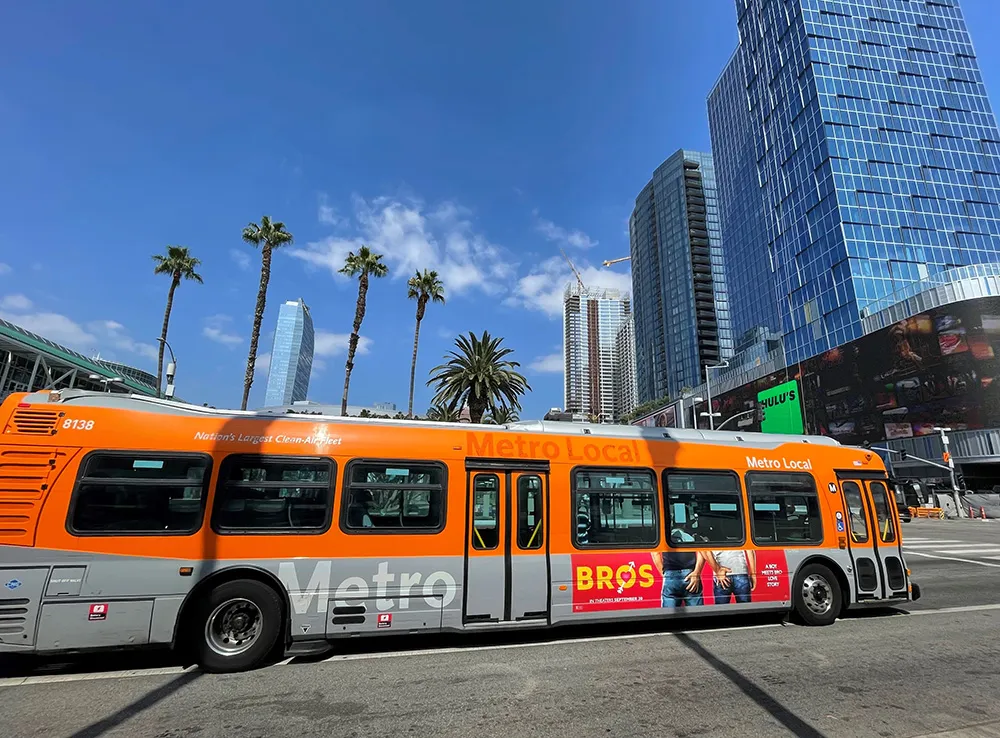A special report, US Managed Lanes, by Fitch Ratings sees toll express or managed lanes (MLs) as especially difficult to assess for financial viability, saying that they vary enormously one to another and are likely to demonstrate very different performance and be subject to greater volatility than regular toll roads. But they say there is now sufficient experience with managed lanes (MLs) for some lessons to be learned.
ML time savings compared to the regular lanes has been seen as the fundamental drive
November 12, 2013
Read time: 3 mins

A special report, US Managed Lanes, by Fitch Ratings sees toll express or managed lanes (MLs) as especially difficult to assess for financial viability, saying that they vary enormously one to another and are likely to demonstrate very different performance and be subject to greater volatility than regular toll roads. But they say there is now sufficient experience with managed lanes (MLs) for some lessons to be learned.
ML time savings compared to the regular lanes has been seen as the fundamental driver of patronage levels, the Fitch analysts say, but motorists may give more weight to greater trip reliability and the perceived safety of MLs.
Maintenance of travel time reliability will be crucial for their success, they say. They see the vast majority of revenue as being collected in peak and shoulder periods when time savings can be offered by the free flowing MLs. Because of their reliance on congestion relief their traffic and revenue is inherently volatile.
They are exponentially affected by upward and downward movements in corridor traffic in conditions of constrained general purpose lanes capacity. And MLs are also liable to be disproportionately affected if untolled capacity alongside is increased.
“MLs exist to provide congestion relief to parallel GPLs (general purpose lanes) and are expected to experience significantly more volatile operating performance than the corridor as a whole. Furthermore, any additional GPL capacity enhancements that result in improved GPL traffic flow would likely cause a step change in traffic movements to MLs. This inherent volatility, exacerbated where GPL expansion is possible, makes forecasting ML performance relatively challenging.”
The report says traffic data show actual time savings are mostly low or very volatile from day to day. ML users are paying US$30 to $60 an hour of time saved and sometimes as much as US$200. Users are often buying insurance against delays rather than paying for typical time actually saved and their typical valuation of time.
The analysts do not discuss the possibility that a significant proportion of users on any one day are discretionary patrons - who have an untypically high value-of-time-saved precisely on those occasions they use the facility. Such occasional users may be paying the toll on the facility today because a quick trip is unusually important on this particular occasion, making their value of time saved today much higher than usual.
So while frequent users are heavily governed by their average value of time saved, the infrequent users may be toll paying because of unusual costs of being late.
ML time savings compared to the regular lanes has been seen as the fundamental driver of patronage levels, the Fitch analysts say, but motorists may give more weight to greater trip reliability and the perceived safety of MLs.
Maintenance of travel time reliability will be crucial for their success, they say. They see the vast majority of revenue as being collected in peak and shoulder periods when time savings can be offered by the free flowing MLs. Because of their reliance on congestion relief their traffic and revenue is inherently volatile.
They are exponentially affected by upward and downward movements in corridor traffic in conditions of constrained general purpose lanes capacity. And MLs are also liable to be disproportionately affected if untolled capacity alongside is increased.
“MLs exist to provide congestion relief to parallel GPLs (general purpose lanes) and are expected to experience significantly more volatile operating performance than the corridor as a whole. Furthermore, any additional GPL capacity enhancements that result in improved GPL traffic flow would likely cause a step change in traffic movements to MLs. This inherent volatility, exacerbated where GPL expansion is possible, makes forecasting ML performance relatively challenging.”
The report says traffic data show actual time savings are mostly low or very volatile from day to day. ML users are paying US$30 to $60 an hour of time saved and sometimes as much as US$200. Users are often buying insurance against delays rather than paying for typical time actually saved and their typical valuation of time.
The analysts do not discuss the possibility that a significant proportion of users on any one day are discretionary patrons - who have an untypically high value-of-time-saved precisely on those occasions they use the facility. Such occasional users may be paying the toll on the facility today because a quick trip is unusually important on this particular occasion, making their value of time saved today much higher than usual.
So while frequent users are heavily governed by their average value of time saved, the infrequent users may be toll paying because of unusual costs of being late.










